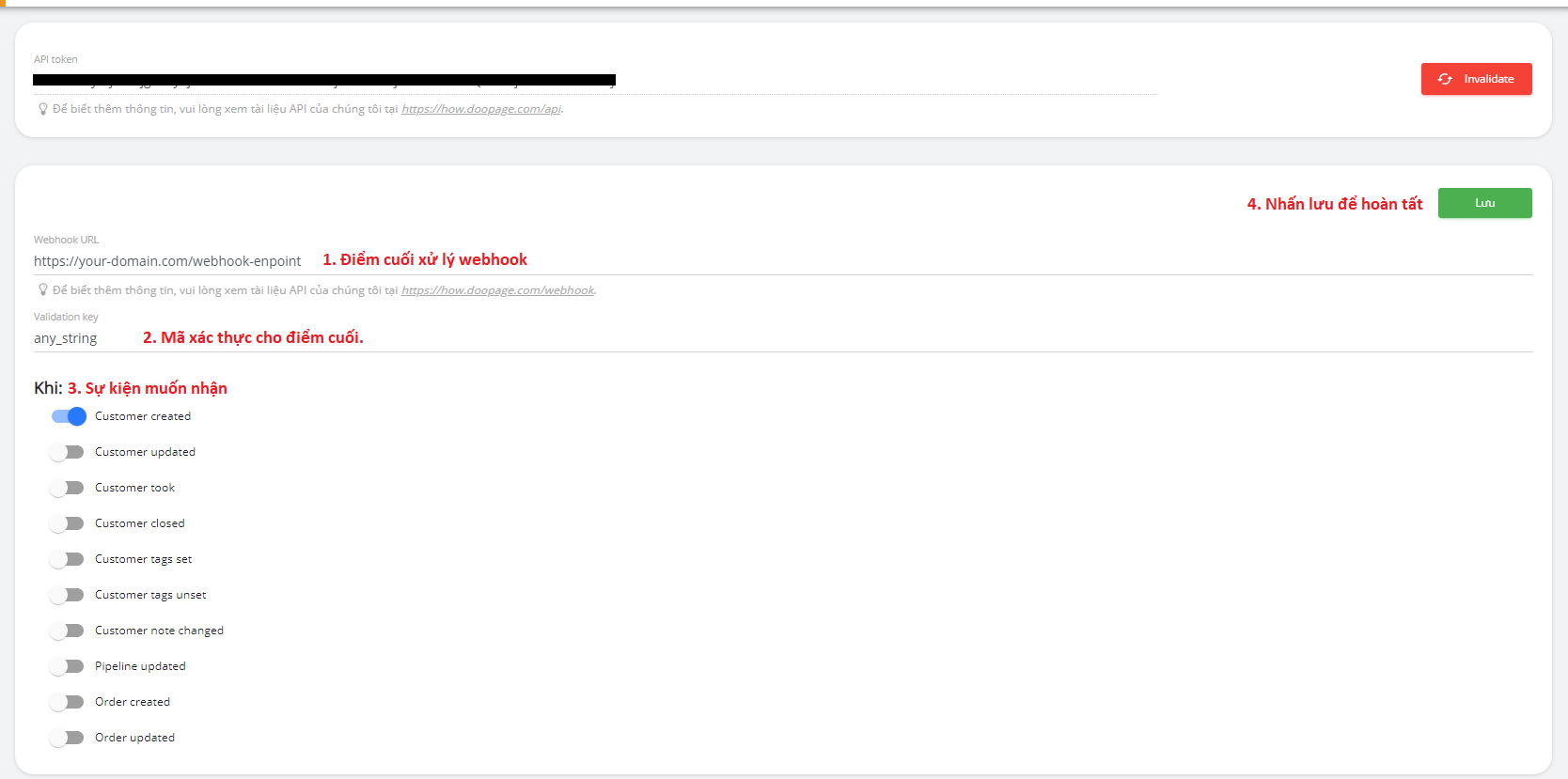Webhook
Tài liệu này giải thích cách thiết lập Webhook để thông báo cho bạn mỗi khi công ty của bạn có một sự kiện cụ thể xảy ra.
Lưu ý
Tạo điểm cuối xử lý webhook
Yêu cầu xác minh
**Yêu cầu xác minh từ DooPage**
GET https://your-domain.com/webhook-endpoint?
validation_key=<your_input_key>&
challenge_key=<random_string>**Xác thực yêu cầu xác minh**
Thông báo sự kiện
Cấu hình Webhooks

Xác thực yêu cầu đến từ DooPage
Webhook payload sample
Customer created
Customer updated
Customer took
Customer transferred
Customer closed
Order created
Order update
Customer Tag set
Customer Tag unset
Note changed
Customer Pipeline Updated
Customer Message Have Phone
Last updated